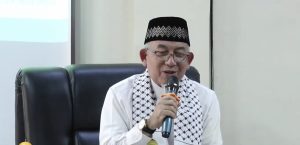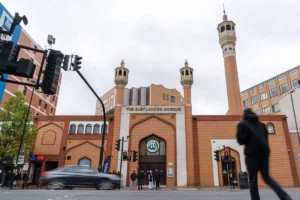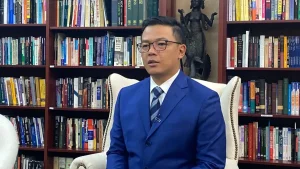BRITISH-URGES-LOCAL-AUTHORITIES-ADVICE-GUIDANCE-STUDENTS-MUSLIM-COMMUNITY-IN-TOP-PROFESSIONS-300x200.jpg" alt="(Foto :IINA)" width="300" height="200" /> (Foto :IINA)
London, 6 Muharram 1437/19 October 2015 – A new report by Demos a British leading think tank urges local authorities to take a more active role in offering good information, advice and guidance to students from the Muslim community in order to improve their representation in top professions, UK LocalGov website reported.
The Rising to the Top’ report reveals that British Muslims are less proportionally represented in the managerial and professional occupations than any other religious group (16 percent, compared to an average of 30 percent) and it lays out a number of ways for local authorities to address this.
The report, which is based on an analysis of residential, educational, and labor force data, and the Demos Integration Hub, also found Muslims in England and Wales are disproportionately more likely to be unemployed and economically inactive, International Islamic News Agency (IINA) quoted by Mi’raj Islamic News Agency (MINA) as reporting.
Muslim communities were also discovered to have the lowest female participation rate of all religious groups.
Also Read: Spain to Take Israel to ICC Over Global Sumud Flotilla ‘Hijacking’
This underrepresentation is, argues the report, the result of five key factors, poor English language skills,lower levels of education, cultural attitudes which restrict the role of women in the labor market and discourage young people from moving away from the local community; discrimination; and workplace culture where alcohol consumption is important for networking.
In order to improve Muslim representation in the top professions, the report’s authors recommend schools and local authorities ensure that they are offering good information, advice and guidance to make sure that students who aspire to top professions are making the right educational choices.
This could include, according to Demos, conducting parent-focused public information campaigns on the employment and education landscape of the UK, and recruiting high-flying Muslim professionals to run career education evenings with parents.
High performing students with poor formal English skills should also receive targeted tutoring, to ensure that a lack of formal English capability is not a barrier to talent.
Also Read: After Release, Greta Thunberg Urges World Not to Look Away from Gaza
The report also outlines in some detail what the central government, the Muslim community, universities and employers can do to improve representation.
Commenting on the report, its author Louis Reynolds said, “Our national conversation about integration almost always focuses on abstract values and attitudes, and too infrequently considers the practical factors that also play such a strong a role in people’s social and economic advancement”.
As this report shows, he continued, “a few achievable changes in education, local authority support, and renewed commitments from Muslim communities and employers, could go a long way towards correcting the underrepresentation of Muslims amongst the UK’s top jobs. Improvement in this area will be an important and necessary step forward for Britain, as our society will become stronger and more cohesive as we begin to tap into the economic potential of many more of our talented young people”. (T/Imt/R03)
Mi’raj Islamic News Agency (MINA)
Also Read: Dutch Medical Association Nominates Dr. Hussam Abu Safiya for Nobel Peace Prize




































 Mina Indonesia
Mina Indonesia Mina Arabic
Mina Arabic